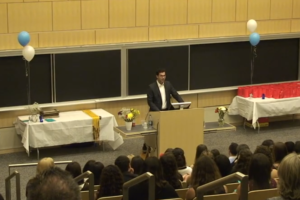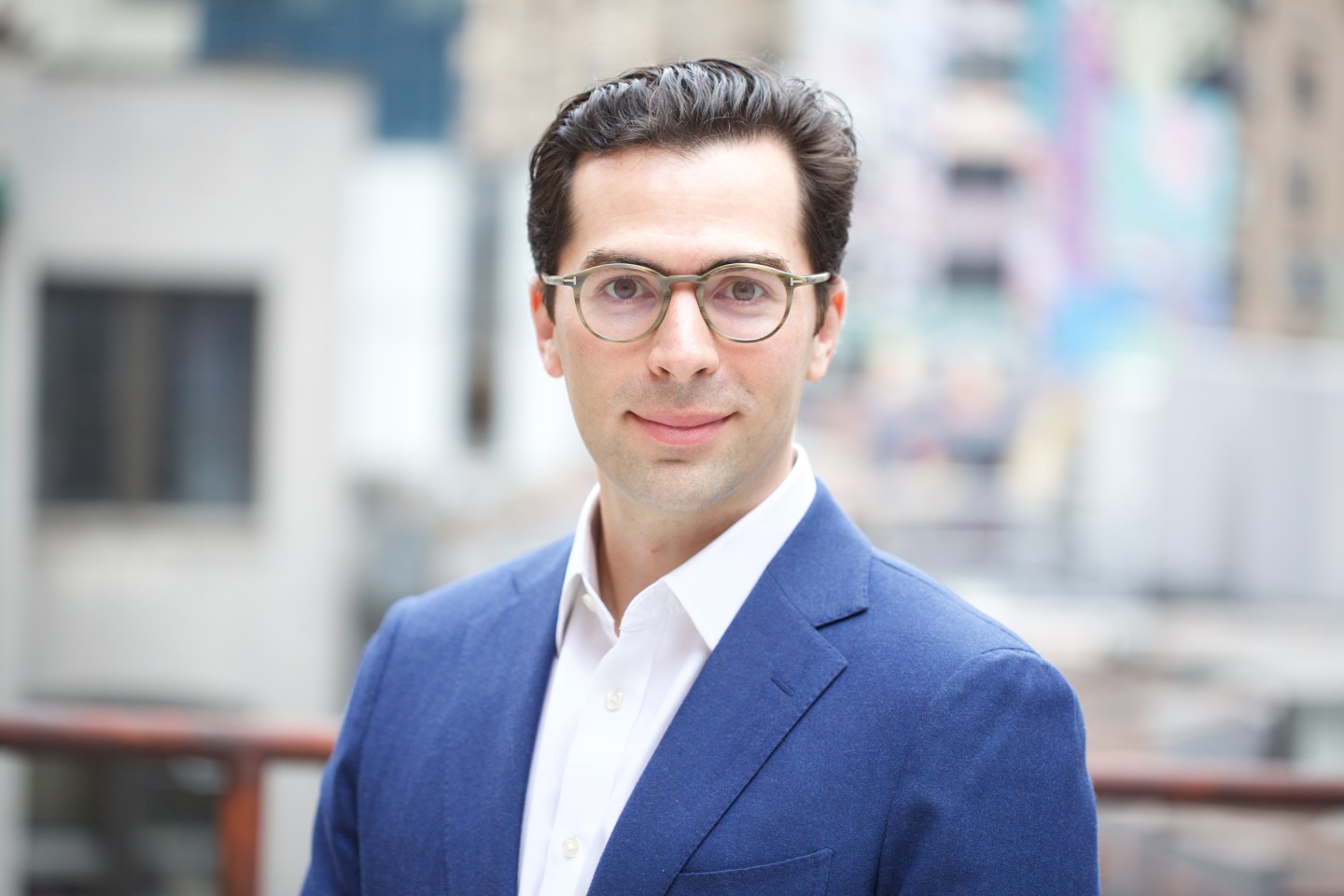Jesse Greif earned his B.S. in psychology at Northeastern. He now is an executive on Wall Street at OneChronos Markets, a new Alternative Trading System that uses AI and Machine Learning to facilitate stock trading.
Can you give me some background information about yourself? When did you attend Northeastern? What did you major in?
Sure! I grew up on a sheep farm in a small historic village in bucolic western New Jersey. I’ve always loved Boston, and went to Northeastern to pursue my interests in neuroscience, and participate in the co-op program. While there, however, I grew increasingly interested in the social side of psychology, particularly under the coursework of Dr. Judith Hall. In addition to satisfying an academic and research interest, social psychology, and its various domains, seemed super practical to me: something I could benefit from in my career and personal life, regardless of direction. Ultimately, I graduated from Northeastern in 2006 with a major in Psychology, minor in Business, after two co-ops and a study abroad on Australia’s Gold Coast.
How has your psychology major impacted your approach to banking, or your career generally?
Great question. Psychology is very much the study of human behavior, and in most capacities these days, being sensitive to human behavior can be enormously valuable. Equally, being sensitive to human bias (your own and others) is an important step for us as a society to progress towards greater equality and diversity. In finance, we often consider both micro and macro effects on economies, which is just the social scientific study of a large body of people. For example, the signal implied by the Fed about the health of the economy is almost more important than the interest rate adjustment itself. The Psych curriculum at NU gave me the foundation to ride these waves. I’m very happy to see the new Business Admin & Psychology combined BS major now available at NU, which speaks to the heart of this question and reflects my personal journey.

What lead you to OneChronos? What makes OneChronos unique?
The founding team is a top notch group: three people with great common values and goals, in addition to the array of skills needed to launch such a fintech endeavor. OneChronos addresses some of the largest challenges in today’s securities trading market structure plumbing. The regulatory structure in equities trading makes it such that speed in transaction and data dissemination can be advantageous to certain trading firms, which create incentives for many to invest in “low latency” infrastructure and trading strategies. The effects of this (and the related costs) are ultimately borne by industry participants, including investors. OneChronos offers a trading venue (to buy and sell stocks) that equalizes the playing field by hosting periodic (rather than continuous) auctions, which renders high speed strategies less useful, while also offering an auction format (called “combinatorial auctions”) that allows users to maintain maximum fidelity of their trading objectives by “bidding” on packages of securities, something that’s usually haphazard in practice, but is now achievable in a single auction. The skills, experience, and network gained through my time at Northeastern, at grad school at The Wharton School, and in the electronic trading field through my previous job at Goldman Sachs gave me the tools to explore entrepreneurship in the context of my field. An emerging and disruptive growth company also allows for rapid innovation, using state-of-the-art techniques, things which are harder to do at an institutional banking organization.
What can AI do in the marketspace that people can’t?
A lot of stuff! A cool example I like outside finance is the AI detection work of eye disease conditions. Some of the best ophthalmologists see and treat maybe 20,000 pairs of eyes in their careers. They’re able to merge research they’ve learned and experience they’ve had to improve their ability to diagnose and treat conditions for future patients. A program like Google’s DeepMind might survey 20,000 pairs of eyes per second, and expose patterns that may exist with no pre-supposed theory behind them, drawing new insights and accuracy levels we, as humans, simply can’t. As it relates to social science, we’re on the verge of being able to systematically understand and map values, skills and attributes of prospective employees to those defined in job roles, optimizing our worker productivity and satisfaction in those roles, as well as correct for many of the inherent or learned biases we have in the candidate selection process. Specific to OneChronos, the combinatorial auction format we use is only possible in the context of extremely high-volume securities trading because of advancements in computer science, optimization techniques, compute power, and their related costs. We use AI machine learning techniques to coach our optimizer to find better solutions in the future when confronted with similar auction dynamics.

Jesse Greif spoke at the Northeastern psychology department commencement in 2012. Photo courtesy of Jesse Greif
What was your most memorable experience at Northeastern?
I don’t know if I have just one but some of the best might include: landing great co-op gigs at John Hancock Financial and Wellington Management, first bite of a Chicken Lous breakfast sandwich, teaching classmates a complex topic that only a few weeks earlier I was stressed about understanding, a handful of amazing Boston baseball, basketball and football post-seasons, late nights on Mission Hill, and walking home from a co-op job through “the Pru” on one of the first days of spring.
And finally, what is your key piece of advice for anyone attending Northeastern?
Treat every day on any job or co-op as an interview. Despite winning the batting crown in 1980, and accumulating over 2,700 hits and 174 home-runs in his 22 year career, the late Bill Buckner is best remembered for a fielding error as a Red Sock during game 6 of the 1986 World Series that many attribute to their losing the series. Be at the top of your game always, and when the boss leaves and or wants to call on her “life boat” you’ll get the shoulder tap.

